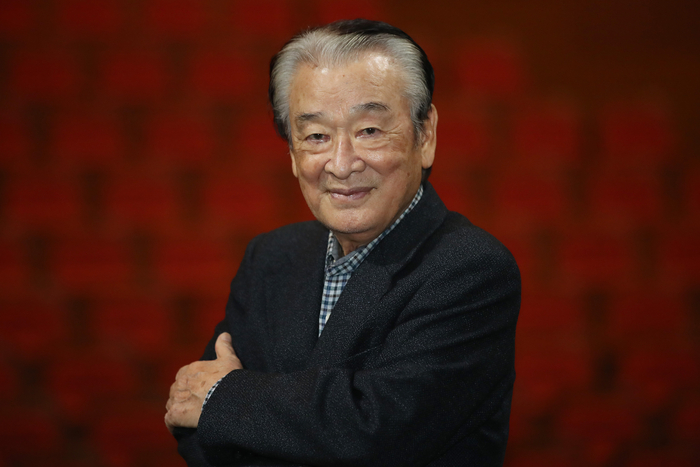
Lee Soon Jae, widely regarded as the oldest active actor in the Korean entertainment industry, has died at the age of 91. According to his family, he passed away in the early hours of the 25th. Until very recently, he had continued performing in the play Waiting for Waiting for Godot and the KBS 2TV series Dog Bark, remaining devoted to his craft until the end.
Born in 1934 in Hoeryong, North Hamgyong Province, Lee moved to Seoul at the age of four to live with his grandparents, though official documents list 1935 as his birth year. He experienced Korea’s liberation while helping his grandfather at Namdaemun Market during elementary school and lived through the outbreak of the Korean War during his first year of high school.
After entering the philosophy department at Seoul National University, he became captivated by cinema, a favorite pastime for students at the time. Inspired by Laurence Olivier’s performance in Hamlet, he decided to pursue acting. He made his stage debut in 1956 with Beyond the Horizon and became a central figure in the rise of Korean broadcasting when he joined TBC as a contract actor in 1965.
Over the decades, Lee appeared in more than 140 dramas, including major works such as I Want to Be Human, Donguibogam, See and See Again, The Age of Three Kims, Bathhouse Men, Rustic Period, Land, and Mom’s Angry. The number of his total appearances, including supporting and minor roles, is impossible to count.
One of his most defining performances came in the drama What Is Love from 1991 to 1992, which reached viewership ratings of 65 percent. His portrayal of Daebali’s Father, a quintessential patriarch in Korea’s traditional family culture, became one of the most iconic roles of that era.
Lee also played a major role in shaping the golden age of historical dramas. Throughout the 1970s and 1980s, he appeared in productions such as Song of the Bride, Queen Inmok, Sangno, Wind and Cloud, and Independence Gate. His commanding presence elevated later hits like Hur Jun in 1999, Sangdo in 2001, and Lee San in 2007, helping cement their place in Korean television history.
Even after reaching the height of his career, Lee continued to reinvent himself. In his seventies, he broke away from his serious image through sitcoms such as High Kick Without Hesitation in 2006 and High Kick Through the Roof in 2009, earning new popularity with younger audiences.
His comedic character known as Yadong Soon Jae became particularly beloved.
His dynamism extended beyond scripted roles. On the variety show Grandpa Over Flowers in 2013, he revealed his energetic personality and earned the nickname Straightforward Soon Jae for his brisk walking pace.
As he approached his nineties, he continued embracing ambitious roles. He returned to the stage in Jangsu’s Store in 2016, Grandpa Henry and Me in 2017, and King Lear in 2021, drawing praise for performing a demanding 200-minute production with a near-perfect command of the script. In 2023, he made his directorial debut by staging Anton Chekhov’s The Seagull with a cast of younger performers in a major theater.
Until health issues forced him to pause his activities last October, Lee remained deeply dedicated to performances of Waiting for Waiting for Godot and the KBS 2TV drama Dog Bark. Last year, he became the oldest recipient of the KBS Acting Grand Prize. Lee also briefly ventured into politics, serving in the 14th National Assembly as a member of the Democratic Liberal Party.
After winning the 1992 general election in the Seoul Jungnang Gap district, he worked as deputy spokesperson for the ruling party and as secretary of the Korea-Japan Parliamentarians’ Union.
Throughout his life, Lee showed unwavering interest in nurturing new talent and taught as a distinguished professor in the Department of Acting Arts at Gachon University until recently. His legacy as an actor, teacher, and pioneering figure in Korean performing arts remains profound and enduring.










